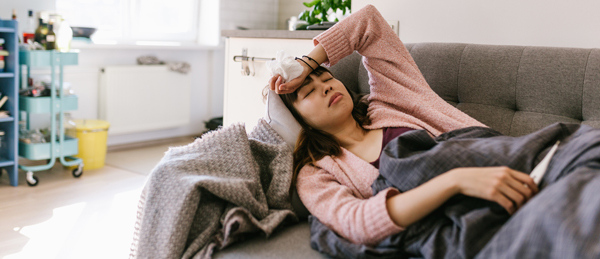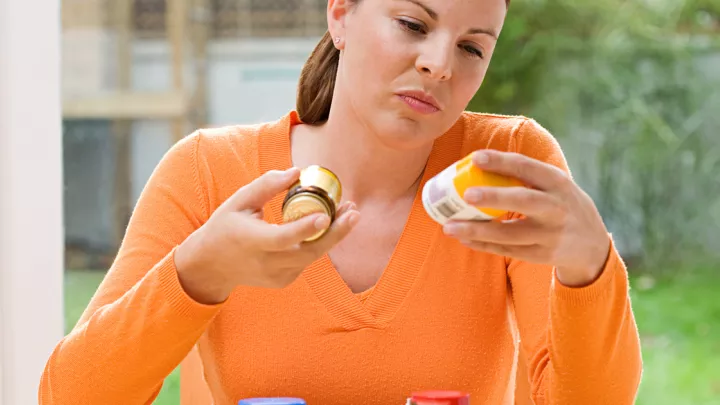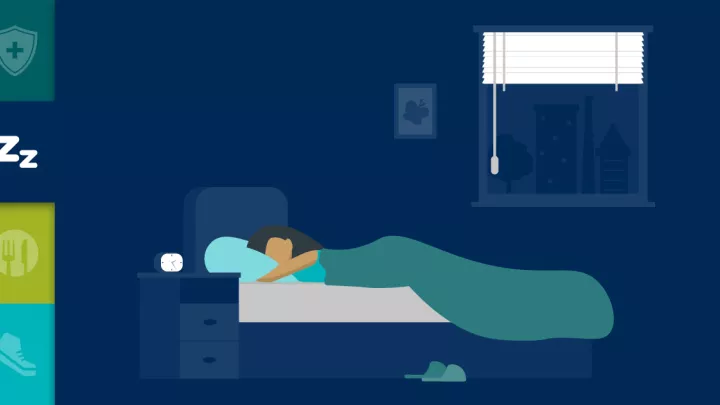
Critical care physician and pulmonologist Brian Boer, MD, has been treating COVID-19 patients since the beginning of the pandemic. Here he shares his expertise on fighting COVID-19 at home – some of it different from what's shared online.
How to rest
First, if you're fighting COVID-19 at home, you don't need to sleep in a certain position. "We know that sleeping on your stomach can improve your oxygenation if you need supplemental oxygen in the hospital. If you don't have severe COVID-19, lying on your stomach or side is not going to affect your disease," says Dr. Boer.
You should move around somewhat during the day, but you don't need to wake up every two hours to walk around. "Maintain your mobility, meaning don't lay on the couch all day, but that isn't specific to COVID-19," says Dr. Boer. "It's more to avoid blood clots and similar issues." Also, moving your arms around doesn't open up your lungs. "Just being mobile and active helps you take a deep breath," he says.
What to take and what to avoid
Maintain a healthy, well-balanced diet. Stay hydrated, especially if you're throwing up or have diarrhea.
No supplements or vitamins have shown any proven benefit for treating COVID-19. If you want to take a normal dose of a vitamin, that's fine. It won't hurt, but there's no evidence that it will help you recover from COVID-19 faster.
Treat your symptoms like you would for other infections, like the common cold. If you have a fever or muscle aches, you can take over-the-counter medications like acetaminophen, naproxen or ibuprofen.
Some drugs will do more harm than good, such as antibiotics. "Antibiotics, in general, do not help COVID-19," says Dr. Boer. Antibiotics combat bacteria, not viruses. So you're left with the side effects of the antibiotics while getting no benefit at all. "Hydroxychloroquine and its derivatives have also shown no benefit to treating COVID-19. A lot of the data shows that it could lead to cardiac events or other secondary outcomes."
When to seek care
The majority of people with COVID-19 have mild symptoms and can treat it at home. Seek medical attention if you have chest pain or shortness of breath.
It's essential to avoid spreading COVID-19 to others. Find out how to keep others safe if you test positive.




